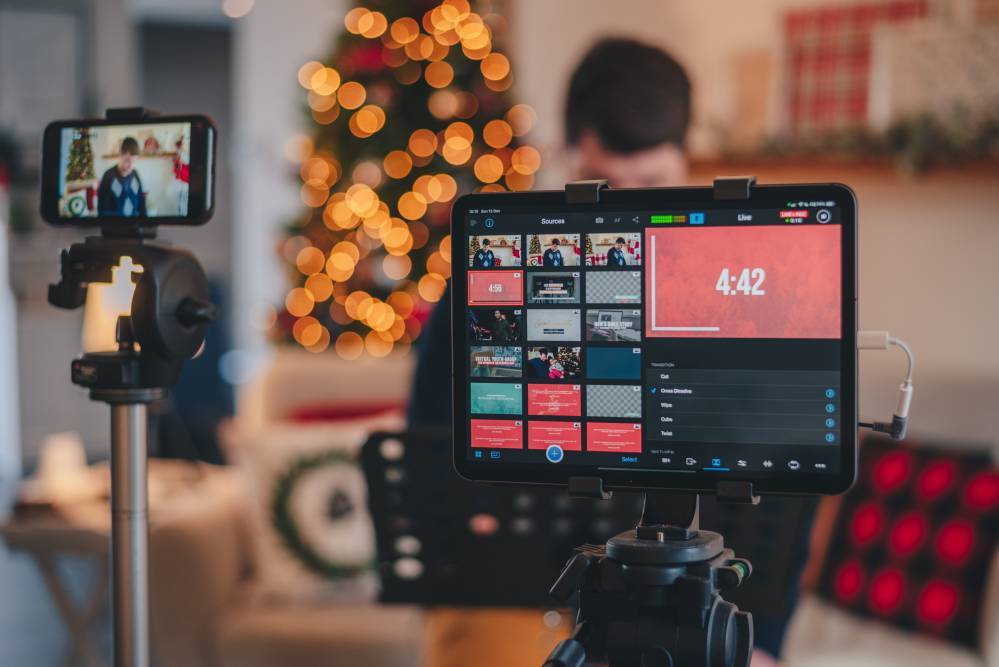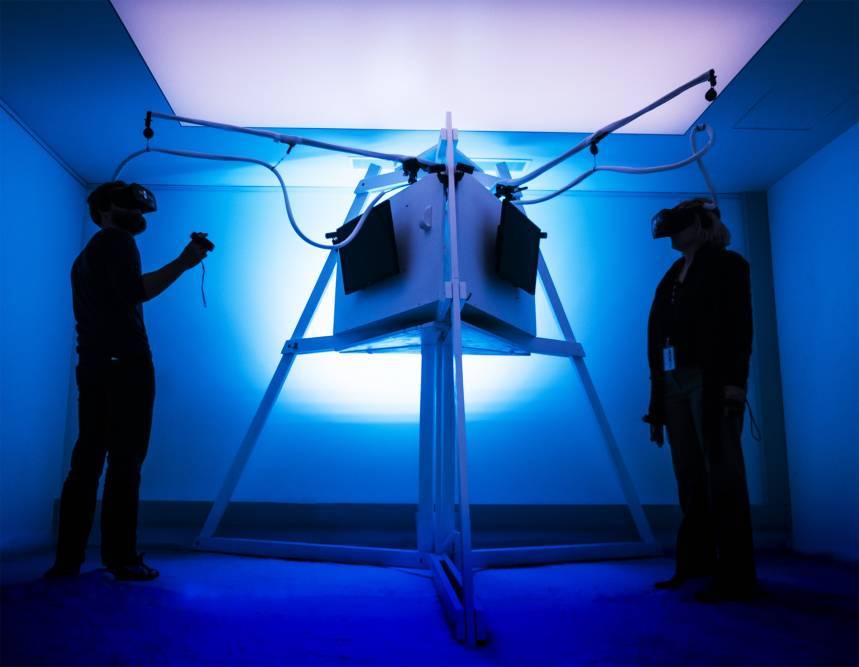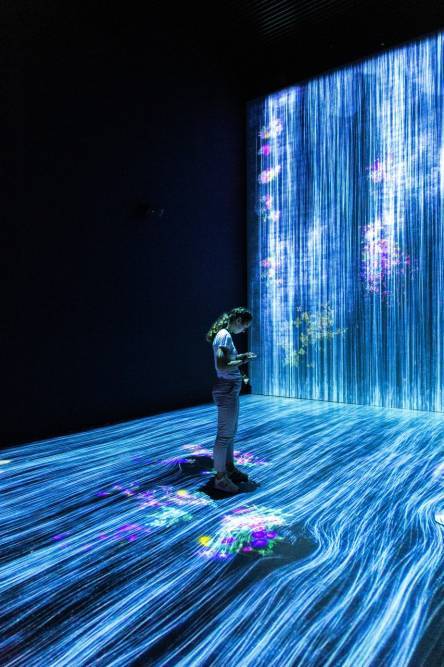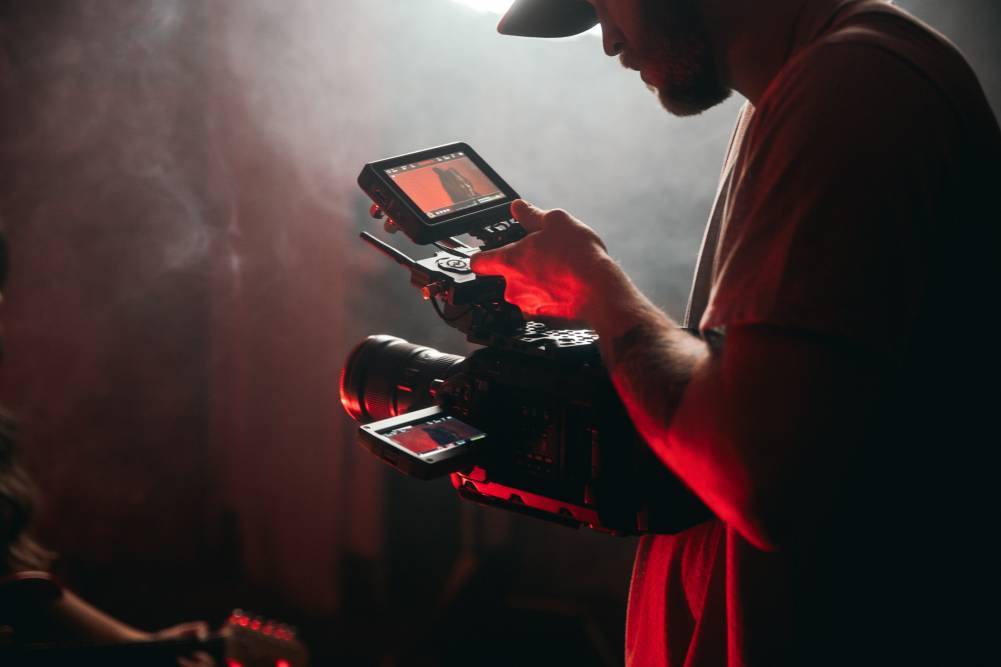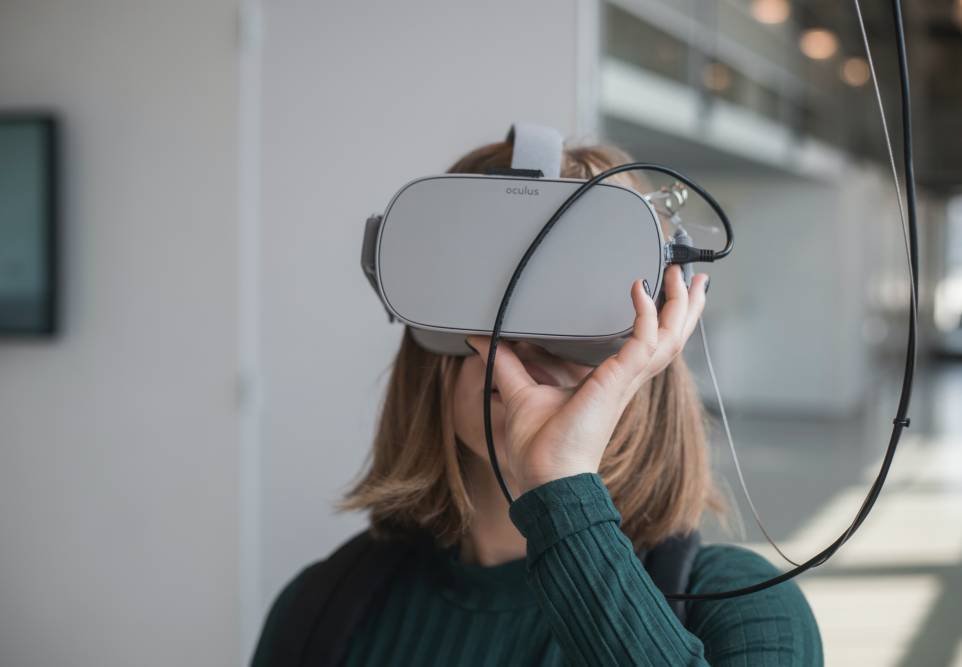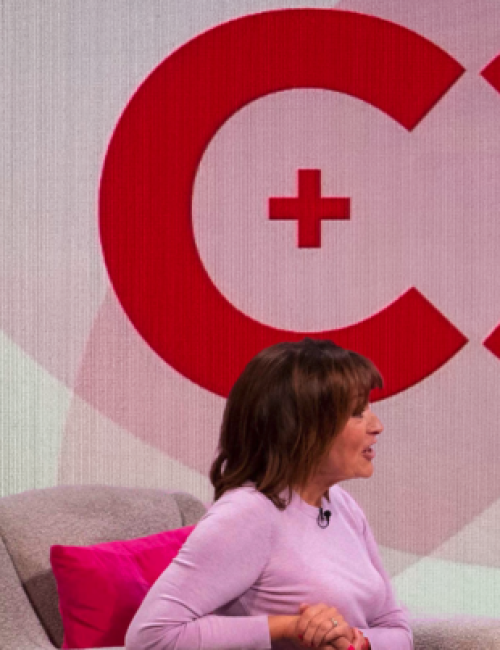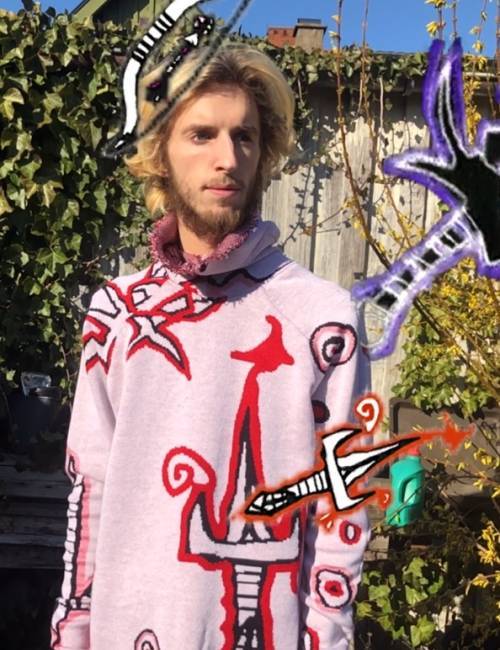Future gazing in content creation
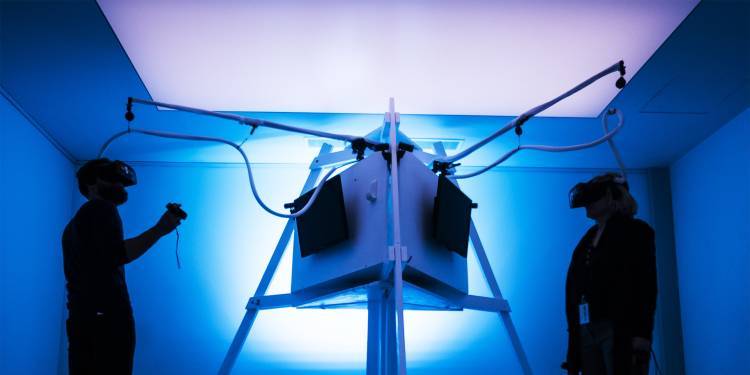
Article by: Gaynor Orvis
Publication date:Katherine Boxall is the architect to our BA (Hons) Digital Content Creation course. She has honed her craft developing academic programmes which focus on developing business skills for those wishing to enter the creative industries. She has a rich history in the luxury fashion, business, IT and finance sectors and has worked with household names such as Harvey Nichols, Oxo Tower, Schuh, BMW, Mercedes, Audi.
She has a wealth of knowledge in predicting future trends in content creation. We caught up with her to discuss everything from the importance of a communication message, to the metaverse, and the potential for new and emerging technology to transform the content creation space.
Firstly, can you give an overview of your own experience?
So starting from the beginning, I initially studied design management at university. My background however is predominantly in advertising and marketing.
Throughout my career I’ve worked with a lot of fashion clients. I’ve worked a lot in the luxury fashion sector, but I’ve also worked with a lot of business clients, as well as across the IT and finance sectors too. I’ve also worked a lot within the digital content and creation space, as well as across digital marketing.
After this I went into education, and my main area was the creative industries. From there, I developed one of the first business schools in the creative industries.
The overarching aim was to support students that were really keen to work within the creative industries, but from a business perspective. So helping students get into work within digital marketing and business management and related fields – but with that creative aspect too. We were also helping students to move into the likes of music management, fashion management and the luxury space, but always with a very creative conceptual awareness.
What do you think are some of the key skills needed to create engaging content?
I think that’s a really good question because it is undoubtedly an already very busy market, and it is becoming more and more saturated.
We already have many platforms that we are looking at, and it is hard to create content that can really break through the noise. So how can that be achieved?
I think the fundamental thing to consider when you’re creating content is research. You have to be continually asking: who is the message for? How can you best reach the intended audience?
When I was developing the BA (Hons) Digital Content Creation course at Ravensbourne, I knew that research needed to be embedded into the whole programme – it delves into both research and analysis, as these are really core skills in content creation.
You also need to be able to look at a brief and really consider your own creativity. It is all about marketing through communication and ultimately making those connections with the customer.
It’s also about understanding how you are going to build the best connection to your consumer, to your customers, to your audience, and understanding it from the client’s perspective too.
Understanding the difference between target market and the customer
Interestingly, there have been many occasions when I’ve been working with luxury brands and they are so focused on considering their target market. But what is really important is to understand who the actual customer, because they often aren’t the same thing. The person buying the product often is not the target customer.
I went to a really insightful conference once, and the CEO of New Look was giving a talk. He explained that while the target market for buying New Look clothes was 18- to 25-year-olds, the actual customer was aged 40 to 45.
Now that’s a massive difference, so when you’re thinking about content creation, this is something that you really have to consider. You need to think carefully about who you’re targeting, because the drivers and desires of someone aged 20 to 25 are obviously going to be pretty different to someone that is aged 40 to 45.
In the next few years, how do you think the content creation space will transform?
I think that’s a really exciting question because the transformation is going to be huge. This is a brilliant time for anyone who is considering moving into content creation, because the possibilities really are endless.
When I develop programmes, like the one at Ravensbourne, I am continually thinking “okay what’s happening now, and what might happen in a few years’ time?”.
Because of the fast-paced nature of content creation, you always need to be thinking a few steps ahead. You need to be trying to predict what jobs are going to open up in this space in the next few years.
In order to do this, we really need to be looking to our digital natives and also the Alpha Generation (early to mid-2010s as starting birth years and the mid-2020s to early 2030s as ending birth years.) to start creating the next generation of platforms which are going to inform the content that we create.
I think more and more we are going to see new and emerging technology such as AI and VR being added to the mix.
I attended a conference around six years ago which was looking into visual language. We were talking about emojis as a form of visual language. We were discussing how in order to better understand this new language the best age group to look to was our teenagers – the younger generations are symbiotically creating their own way of communicating visually, and it's these groups of people we need to be looking to predict how the sector is likely to evolve.
These new cultures and subcultures are being created all the time, and the most successful brands are able to really tap into this. This then informs new trends, which are happening all the time.
With the emergence of big data, the ability of companies to mine this sort of information will be really key to their content creation success. Some successful companies are already using this insight to inform how they generate content and even what their business models look like. The businesses that aren’t able to use this analysis are the ones that are going to start to lag behind.
So with this in mind, this is why digital marketing is such an integral component to the BA (Hons) Digital Content Creation course at Ravensbourne.
Do you think the metaverse is likely to transform content creation?
I think it’s so exciting. There are many pros and cons of the metaverse, but the concept of the metaverse has been around in one form or another has been around for quite some time. I don’t think many people realise that.
If you think back to things like The Sims, or programmes like Second Life, people had their own avatars in these digital realms.
This thing about ownership and buying and exchanging things online, it is already really natural for Gen Z to interact like that. We need to be constantly thinking ahead to how this space might evolve.
Brands and digital currency
There are many brands, especially within the beauty and fashion sectors that are already really exploring the potential of the metaverse and things like NFTs as a form of digital currency.
Dolce and Gabbana have recently brought out a collection of NFTs that it is selling for six million dollars. You think “wow, this thing doesn’t actually exist” and yet it’s still being sold. But we still need a way of propelling this amazing content into the public space.
It is really interesting to see how brands are beginning to express themselves within this space and create their own content. It is really exploratory and it will be interesting to see what the younger generations, and those on the content creation course come up with too.
This has opened up possibilities to an entirely different business model and a new way of doing things. It is propelling brands into the future in a really intentional, meaningful way which we haven’t seen done before.
When it comes to content creation, how important is choosing the right medium for communicating a message?
The medium makes the message. This is a really fundamental thing to remember because it is entirely possible to choose the wrong medium and that can destroy the concept that you’ve created.
Again, understanding your audience is the most important thing here. It’s about thinking about the mission and the values of the brand that you’re working with. More and more, content creation is about enabling consumers to engage in this sort of multi-vocal approach.
Before social media marketing really took off, there was a very linear approach to disseminating a message – you’d have the advertising message and it would go straight to those in the media, so the magazine or the website, and from there it would reach the consumer.
Nowadays however we have this multi-vocal approach where the message goes out across multiple channels and the consumer has the opportunity to interact directly with it. So if you create the right content for the right mediums, then you can engage people in a really meaningful way.
When you are getting the message out, you have to make sure that the approach is joined-up, so that it really does the brand justice. There are many brands out there that are doing it really successfully.
In your opinion, what are some of the brands making really engaging content at the moment?
One brand that immediately springs to mind is Gucci. I think since the current creative director, Alessandro Michele, took over he has really embraced this new and emerging technology.
The brand’s content strategy is really exceptional, whether it be through exhibition, through digital, through the creation of NFTs, through film, through catwalk shows – he’s creating something special across so many mediums and tapping into every single way to engage the customer.
They recently made this really ethereal film called Aria, which was also the brand’s first NFT that went up for sale. The film expands Gucci’s Aria celebration, incorporating Michele’s recent runway presentation in a four-minute video clip. The clip was eventually sold for $25,000 and all proceeds were donated to UNICEF.
Under Michele’s direction the brand is doing some really fascinating things with its content. All the campaigns have these really elaborately worked up concepts – it really is mind blowing! I would definitely recommend having a look at what Gucci is up to for some creative inspiration.
Why do you think there has been such a rise in content creation courses in the last few years?
I think businesses and brands are understanding the imminent need to innovate in order to stay relevant. Because of this, there is a massive demand for individuals who possess diverse skills in content creation.
Businesses are understanding the need to diversify and to embrace different technologies and mediums to reach their audiences. Because of this, there is a real demand for graduates that can support these products.
It has been predicted that by 2030, 85% of jobs are going to be in industries that don’t even exist yet. Whether it's within AI, the metaverse, the NFT space; there is so much opportunity for job creation within digital content.
Another thing that is really driving this increase in these types of courses is the fact that young people are interacting with so many platforms at once. Take my son for example, he can watch a film online and play a computer game all the while he might be Facebooking or Snapchatting his friends. He is capable of doing four or five different things at once.
However, put some of these young people in a classroom and they might struggle to concentrate. At the moment there is a lag between the rate that technology is evolving and education. But things are going to have to change and courses like this one are providing opportunities for young people to be creative and apply these skills that they are learning on their own in their bedrooms.
For some of these creative young people, a mainstream education just isn’t right for them, so these courses will support those people and will help to drive and create these new jobs and opportunities.
To stay up to date with what's going on within the content creation space are there any sources of information that you would recommend to go to?
There are some absolutely amazing resources out there. I would recommend that budding content creators have their eyes across every major platform.
LinkedIn is a superb space to learn about what is going on within the industry and provides some good opportunities to see what is happening within the emerging tech spaces.
I would also say that you should be looking at micro-influencers carefully too. Micro influencers (influencers with smaller numbers of followers) might not have the following that the bigger macro-influencers have, like Kim Kardashian etc, but they actually have more resonance with the consumer because they are a lot more relatable.


